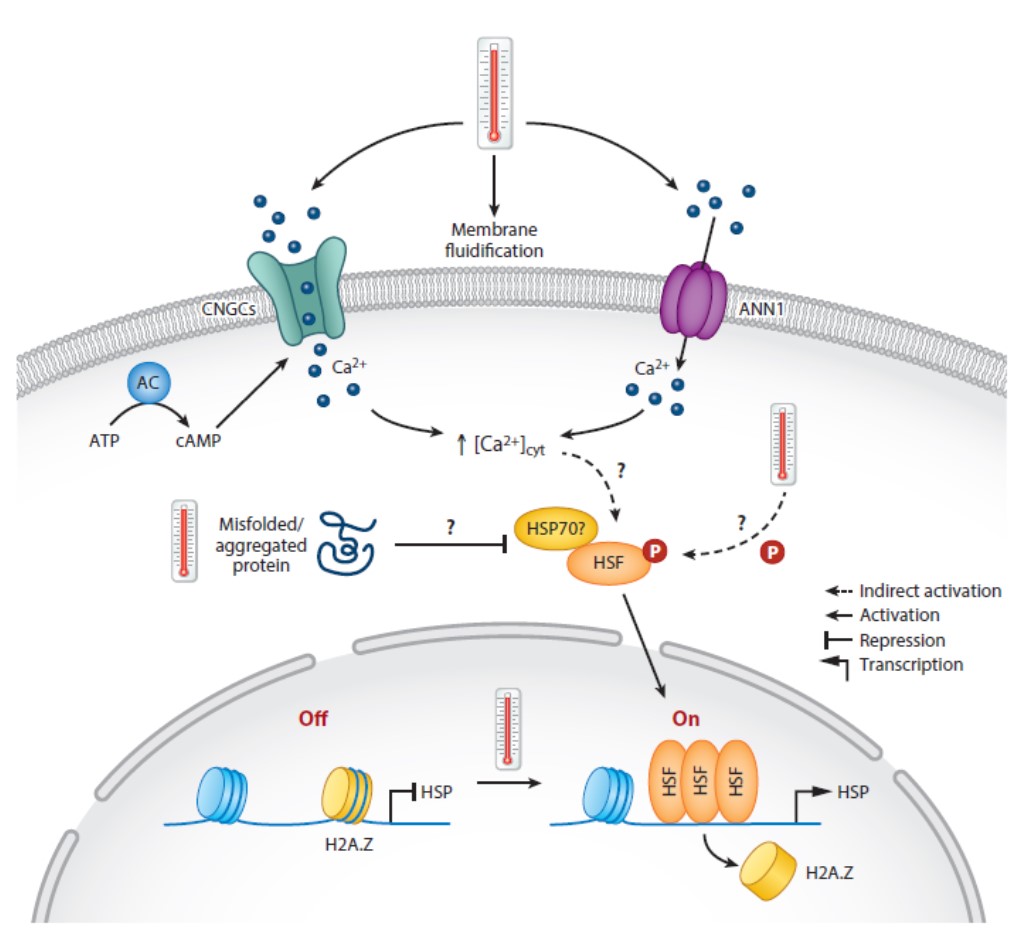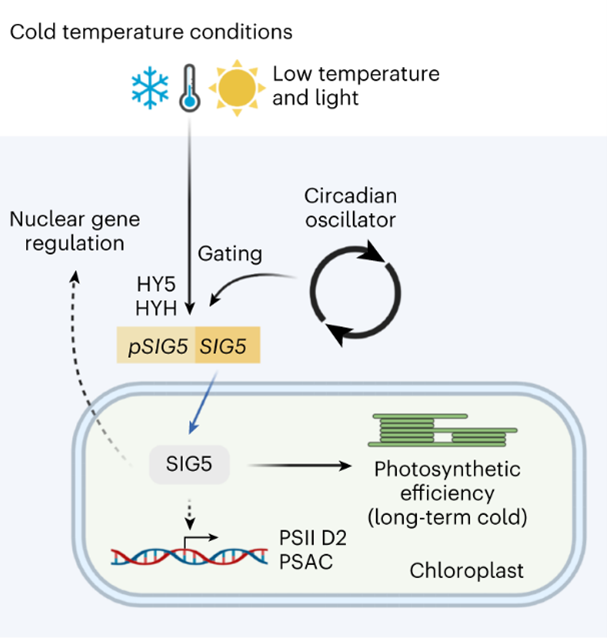
Methyltransferase TaSAMT1 mediates wheat freezing tolerance by integrating brassinosteroid and salicylic acid signaling
Plant Science Research WeeklyTemperature extremes, such as cold stress, severely affect wheat (Triticum aestivum) productivity and quality by impairing its vegetative and reproductive growth. Several phytohormones have roles in cold stress, such as brassinosteroids (BRs) and salicylic acid (SA). However, how BR interacts with SA…

The E3 ubiquitin ligases PUB25 and PUB26 dynamically regulate cold stress responses in plants
The Plant Cell: In a NutshellWang et al. discovered how plants dynamically respond to cold stress mediated by the E3 ligases PUB25 and PUB26.
https://doi.org/10.1093/plcell/koad159
By Xi Wang1, Xiaoyan Zhang1, Chunpeng Song3, Zhizhong Gong1,2, Shuhua Yang1 and Yanglin Ding1
1State Key Laboratory of Plant Environmental…

SIGMA FACTOR5 protects freezing plants
Plant Science Research WeeklyLow temperatures quickly and reversibly inhibit photosynthesis, which is assumed to shield the photosynthetic system from a drop in metabolic activity brought about by cold. In a recent study, Cano-Ramirez et al. found that in Arabidopsis, a nuclear-encoded sigma factor (SIG5) controls chloroplast transcription…

Review: Temperature sensing in plants
Plant Science Research WeeklyLike all organisms, plants respond to changes in temperature by activating pathways that enable them to stay alive in spite of rising or lowering temperatures. Interestingly though, there is no universal temperature sensing mechanism across the domains of life. Changes in membrane fluidity (think of…

